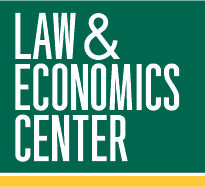Home
Use our global calendar of privacy events to locate an event near you.
FILTER BY

Co-sponsored by the Gibbons Institute of Law, Science & Technology and Institute for Privacy Protection
WHEN
April 19-20, 2018
WHERE
Faculty Library
CLE CREDIT
NJ/PA CLE Credits TBD
DESCRIPTION
Scholars, legal practitioners, and policymakers have begun to consider pressing issues raised by artificial intelligence technologies. Traditional regulatory frameworks are a poor match for a world of ubiquitous data collection, “smart” environments, and automation at scale. This conference will bring together technologically-literate lawyers, policymakers, advocates, and academics across disciplines and sectors to discuss possible solutions grounded in law, administrative policy, or organizational practice. Confirmed presenters include:
Ed Felten, Robert E. Kahn Professor of Computer Science & Public Affairs and Director, Center for Information Technology Policy, Princeton University
Terrell McSweeney, Commissioner of the Federal Trade Commission
Frank Pasquale, Professor of Law, University of Maryland

Ben Shneiderman, Distinguished University Professor in the Department of Computer Science, Founding Director of the Human-Computer Interaction Laboratory, and Member of the Institute for Advanced Computer Studies, University of Maryland, College Park
Vital services such as communications, financial trading, health care, and transportation depend on sophisticated algorithms. Some rely on unpredictable artificial intelligence techniques, such as deep learning, that are increasingly embedded in complex software systems. As high-speed trading, medical devices, and autonomous aircraft become more widely used, stronger checks are necessary to prevent failures. Design strategies that promote comprehensible, predictable, and controllable human-centered systems can increase safety and make failure investigations more effective. Social strategies that support human-centered independent oversight during planning, continuous monitoring during operation, and retrospective analyses following failures can play a powerful role in making more reliable and trustworthy systems. Clarifying responsibility for failures stimulates improved design thinking.
Free and open to the public.
Ben Shneiderman is a Distinguished University Professor in the Department of Computer Science and the founding director (1983–2000) of the Human-Computer Interaction Laboratory at the University of Maryland, where he is also a member of the University of Maryland Institute for Advanced Computer Studies. He is a fellow of the American Association for the Advancement of Science, the Association for Computing Machinery, the Institute for Electrical and Electronics Engineers, and the Network Advertising Initiative and an elected member of the National Academy of Engineering, in recognition of his pioneering contributions to human-computer interaction and information visualization. His contributions include the direct manipulation concept, clickable highlighted weblinks, touchscreen keyboards, dynamic query sliders, development of treemaps, novel network visualizations for NodeXL, and temporal event sequence analysis for electronic health records.
Shneiderman is the lead author of Designing the User Interface: Strategies for Effective Human-Computer Interaction, 6th ed. (Pearson, 2016). He coauthored, with Derek Hansen and Marc A. Smith, Analyzing Social Media Networks with NodeXL: Insights from a Connected World (Morgan Kaufmann, 2010) and, with Stuart K. Card and Jock Mackinlay, Readings in Information Visualization: Using Vision to Think (Morgan Kaufmann, 1999). Shneiderman’s book The New ABCs of Research: Achieving Breakthrough Collaborations (Oxford University Press, 2016) has an accompanying short book, Rock the Research: Your Guidebook to Accelerating Campus Discovery and Innovation (independently published, 2018).
This event is cosponsored by the Harvard Data Science Initiative.

Kalinda Raina, head of global privacy at LinkedIn will share her insights on how to build privacy into your company’s corporate culture.
4-5pm – Kalinda will present, followed by Q&A
5-6pm – informal networking and small group discussions
Kalinda Raina is a privacy leader with 16+ years experience in both building privacy programs and strategies from the ground up and ensuring enterprise compliance. She is currently the Head of Global Privacy for LinkedIn and was previously Head of Privacy for the Americas at Apple and the first Chief Privacy Officer of Nintendo of America Inc. She has a real passion for developing strong privacy cultures within organizations to help ensure privacy is integrated into products and relevant to every member of the workforce.

Please join local IAPP members for an informal evening of networking. Attendees are responsible for their own expenses.
This KnowledgeNet Happy Hour is a fun and easy way to get to know other local privacy professionals. The event is open to anyone who works in or is interested in privacy. There’s no agenda, just show up and have a good time!
Please note: CPE credits are not awarded for KnowledgeNet Happy Hours.
Special thank you to Washington, DC Chapter Young Privacy Professional Leaders, James Morris, CIPP/US, CIPM, FIP, Booz Allen Hamilton and Bryant Fry, CIPP/US, Privacy Manager, Council of Better Business Bureaus, for organizing this happy hour.
|
|
|

Privacy and security legislation is often written by lawyers who lack deep technical knowledge. Georgetown Law and the Massachusetts Institute of Technology are testing a solution: Why not pair law students with engineers and see if they can write better privacy laws?
Interdisciplinary teams, consisting of Georgetown Law students and MIT students, pitch a panel of experts on draft legislation addressing:
- Police Geolocation
- Broadband ISP Privacy
- Immigrant Surveillance
- Body Camera Surveillance
- Smart Cities
- Mobile Device Privacy
Coffee and tea will be served.

This year’s program seeks to highlight challenges to privacy posed by widespread adoption of machine learning and artificial intelligence technologies. One motivation for this focus stems from goals and provisions of the European General Data Protection Regulation (GDPR), including requirements for privacy and data protection by design, providing notices and information about the logic of automated decision-making, and emphasis on privacy management and accountability structures in organizations that process personal data. Interpreting and operationalizing these requirements for systems that employ machine learning and artificial intelligence technologies is a daunting task.
As engineering is asked to play a larger role in privacy governance, software developers need tools for understanding, systematizing, and embedding privacy into systems and workflows. This work also requires greater engagement with design, legal, and public policy departments. Methods and tools for bridging privacy work across these communities are essential to success. Furthermore, research that focuses on techniques and tools that can aid the translation of legal and normative concepts into systems requirements are of great value.
Organizations also need tools for systematically evaluating whether systems fulfill users’ privacy needs and requirements and for providing necessary technical assurances. Methods that can support organizations and engineers in developing (socio-)technical systems that address these requirements is of increasing value to respond to the existing societal challenges associated with privacy.
In this context, privacy engineering research is emerging as an important topic. Engineers are increasingly expected to build and maintain privacy-preserving and data-protection compliant systems in different ICT domains such as health, energy, transportation, social computing, law enforcement, public services; based on different infrastructures such as cloud, grid, or mobile computing. While there is a consensus on the benefits of an engineering approach to privacy, concrete proposals for models, methods, techniques and tools that support engineers and organizations in this endeavor are few and in need of immediate attention. Also of great relevance are the development and evaluation of approaches that go beyond the one size fits all mantra, and that attend to the ever evolving practice of software engineering in agile service environments across different domains.
To cover this gap, the topics of the International Workshop on Privacy Engineering focus on all the aspects surrounding privacy engineering, ranging from its theoretical foundations, engineering approaches, and support infrastructures, to its practical application in projects of different scale across the software ecosystem.
Specifically, we are seeking the following kinds of papers:
1) technical papers that illustrate the engineering or application of a novel formalism, method or other research finding (e.g., engineering a privacy enhancing protocol) with preliminary evaluation;
2) experience and practice papers that describe a case study, challenge or lessons learned in a specific domain;
3) early evaluations of tools and other infrastructure that support engineering tasks in privacy requirements, design, implementation, testing, etc.;
4) interdisciplinary studies or critical reviews of existing privacy engineering concepts, methods, tools and frameworks;
5) vision papers that take a clear position informed by evidence based on a thorough literature review.

The Program on Economics & Privacy (PEP) at George Mason University Antonin Scalia Law School, will host a scholars conference on the economics of digital information policy on Friday, April 27, 2018. The conference will be open to the public.
The mission of PEP is to promote the sound application of economic analysis to issues surrounding the digital information economy through original research, policy outreach, and education. The annual Digital Information Policy Scholars Conference is intended to further this goal by providing a forum to present original research on this important area of the US economy.
TOPICS:
Topics of interest include, but are not limited to:
|
SUBMISSIONS:
Please send your paper or abstract by February 19, 2018, to Jeff T. Smith, Coordinator of PEP, at [email protected]. Preference will be given to completed papers. The selection committee includes Alessandro Acquisti (Carnegie Mellon), Jane Bambauer (University of Arizona, James E. Rogers College of Law), Michael Baye (Indiana University, Kelley School of Business), James Cooper (George Mason University, Antonin Scalia Law School), Sasha Romanosky (RAND), Andrew Stivers (Federal Trade Commission), and Catherine Tucker (MIT, Sloan School of Management). Selections will be made by March 5, 2018.
Selected authors will receive a $300 honorarium and will be provided lodging for the night of April 26, 2018. There will be a dinner for participants on April 26. Selected authors will be responsible for submitting a final version of their paper by April 13, 2017. In addition to presenting their paper, selected authors will be expected to serve as a discussant for one paper at the conference.

The Conference will feature a luncheon keynote from Andrew E. Stivers, Deputy Director for Consumer Protection, Bureau of Economics, Federal Trade Commission.
This conference will feature 12 original research papers, including:
SEC Financial Filings
Ginger Jin (University of Maryland and National Bureau of Economic Research) and Yi Cao(University of Maryland Robert H. Smith School of Business)
Privacy Literacy and Self-Efficacy in Establishing Value of Privacy
Dmitry Epstein and Kelly Quinn (University of Illinois at Chicago)
Sponsored Search Advertisement and Consumer Prices
Eduardo Schnadower Mustri, Alessandro Acquisti (Carnegie Mellon University), and Idris Adjerid (University of Notre Dame)
Infrastructural Solutions to the Analog Keyhole Problem
David Sidi and Laura Brandimarte (The University of Arizona)
Are Digital Markets Different?
John Newman (University of Memphis Cecil C. Humphreys School of Law)
Airbnb, Anonymity, and Illegal Actors
Liad Wagman (IIT Stuart School of Business)

In four years, connect:ID, powered by Science Media Partners and the International Biometrics + Identity Association (IBIA),has become the world’s premier event dedicated to all aspects of human identity technology and its implementation in the digital, mobile, and physical domains.
The event has grown as governments, the private sector, and consumers, increasingly recognize the importance of secure identity solutions. The challenge is to understand how these systems can be used in a way that is natural and frictionless, yet is trusted, and sensitive to privacy concerns.
: Our mission…
Secure identity technology can be used in a multitude of ways. From next-generation authentication solutions for accessing digital or mobile infrastructures, to securing transactions, and delivering new, efficient ways to identify citizens.
connect:ID’s mission is to explore how secure identity technology is enhancing authentication, wherever it is used – from aviation and border control, to healthcare, finance, education and countless other markets.
We will also consider challenging issues, such as identity fraud, personal data theft, the intensification of national security threats, and cyber intrusions. Customers, employees, and citizens also need a less frustrating, yet trusted, method to authenticate their identity.
: Join us
With our comprehensive identity-solutions based exhibition, and a multitrack conference that draws together the world’s leading minds – and pioneers – connect:ID 2018 will offer users practical advice for today, examine current government policies, and provide thought-provoking insights into the future of identity.
connect:ID brings together leading experts from industry, as well as adopters and government officials, to explore the development and fusion of multiple advanced identity technologies.
Government, commercial and consumer markets are in search of answers to the growing difficulties associated with managing and securing human identity. connect:ID takes up this challenge, exploring, in-depth, these real world requirements.
irst ever IAPP multi-language conference set to debut in Munich.
Join data protection professionals from across Europe for two days of concentrated learning, sharing, and networking at the IAPP Data Protection Intensive Deutschland 2018 in Munich on 18-19 September.
All sessions will be delivered by data protection experts in parallel tracks−one in English, the other in German. It’s practical advice designed to improve your operational response to the GDPR and prepare you for future challenges.
If you wish to speak with someone in German for details about the IAPP Data Protection Intensive Deutschland 2018, contact the IAPP European office in Brussels at [email protected]or +32.(0)2.761.66.86.
IAPP Data Protection Intensive in München: Erfahrungsaustausch ohne Grenzen
Treffen Sie zwei Tage lang Datenschutzexperten aus ganz Europa und teilen Sie ihre Erfahrungen mit er neuen Datenschutz-Grundverordnung (DSGVO): Die International Association of Privacy Professionals (IAPP) lädt Datenschutz-Experten am 18. und 19. September 2018 zur ersten deutschen „IAPP Data Protection Intensive“ nach München.
Lernen Sie praktische Lösungen für rechtskonformen Datenschutz in der Unternehmenspraxis kennen und profitieren Sie vom Wissen ausgewiesener Spezialisten. Die Vorträge werden parallel auf Deutsch und Englisch angeboten.
Wir stehen Ihnen (auch in deutscher Sprache) bei Fragen zur IAPP Data Protection Intensive in München gerne zur Verfügung. Kontaktieren Sie das europäische IAPP-Büro in Brüssel unter [email protected] oder +32 (0)2 761 6686.
Informative Sessions

The DPO’s Place in the Organisation
An effective DPO wants to be helpful, create efficiencies by spotting problems early, and be savvy in reducing risk for the organisation. This panel discussion will explore experiences of fitting and doing great work.

Tackling the DPIA: Formats and Foibles
This session will look at methodologies for performing DPIAs correctly, talk about interactions with regulators when they become necessary, and provide concrete tools for making your process more efficient.

Privacy by Design and Privacy by Default—On the Ground
In this panel discussion, we hear about how these concepts are being honoured in practice, and what success looks like. We’ll also get real-world scenarios outlining what privacy by default does—and does not—look like in the product development process.
Conference Venue
The Sofitel Munich Bayerpost blends historic avant-garde architecture with high technology, celebrating both local culture and innovation—an ideal setting to explore how far privacy and data protection have come.

Sofitel Munich Bayerpost
Bayerstraβe 12
80335 Munich
Tel: (+49)89/599480
Fax: (+49)89/599481000
E-mail: [email protected]
Click here for a map, points of interest, and directions.
